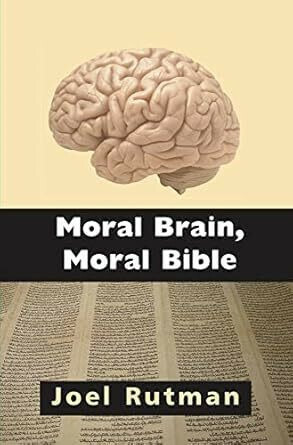Moral Brain, Moral Bible (Paperback)
Imprint: Vallentine Mitchell
Pages: 140
ISBN: 9781912676958
Published: 12th November 2021
Script Academic & Professional
Pages: 140
ISBN: 9781912676958
Published: 12th November 2021
Script Academic & Professional
You'll be £19.95 closer to your next £10.00 credit when you purchase Moral Brain, Moral Bible. What's this?
+£4.99 UK Delivery or free UK delivery if order is over £40
(click here for international delivery rates)
Order within the next 11 hours, 17 minutes to get your order processed the next working day!
Need a currency converter? Check XE.com for live rates
(click here for international delivery rates)
Order within the next 11 hours, 17 minutes to get your order processed the next working day!
Need a currency converter? Check XE.com for live rates
Drawing from multiple scientific disciplines – including neuroscience, child development, anthropology, and evolutionary psychology – Joel Rutman summarizes what is known about the origin of moral behaviour. He explains how our ideas of right and wrong are based on evolved built-in brain predispositions that are then shaped by family and culture.
The science of human behaviour helps to explain events and ideas in the Hebrew Bible. Moral behaviours associated with the Biblical Good Inclination (yetzer ha'tov) are based on genetically influenced empathy, kin selection, altruism and cooperation; while those behaviours associated with the Biblical Evil Inclination (yetzer ha'ra) are based on hatred, aggression, sibling rivalry, perverted sex, disgust and selfishness – all of which have roots in human evolution. New-found knowledge of the origin and location of reason and emotion in the human brain contributes further to our understanding of Biblical morality.
The author summarises the over-all scientific and Biblical approaches to moral behaviour and explores the favourable and problematic aspects of each approach. Biology explains how we reach moral decisions but fails to tell us which morality we should choose, while the Hebrew Bible includes problematic passages that conflict with current notions of morality.
Rutman concludes that there is continued need for the Hebrew Bible to teach us how we ought to live and how it is possible for us to achieve sacred lives.
Other titles in Vallentine Mitchell...










